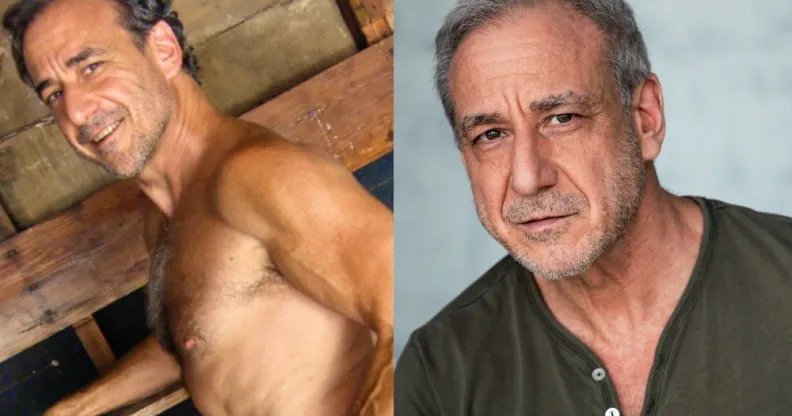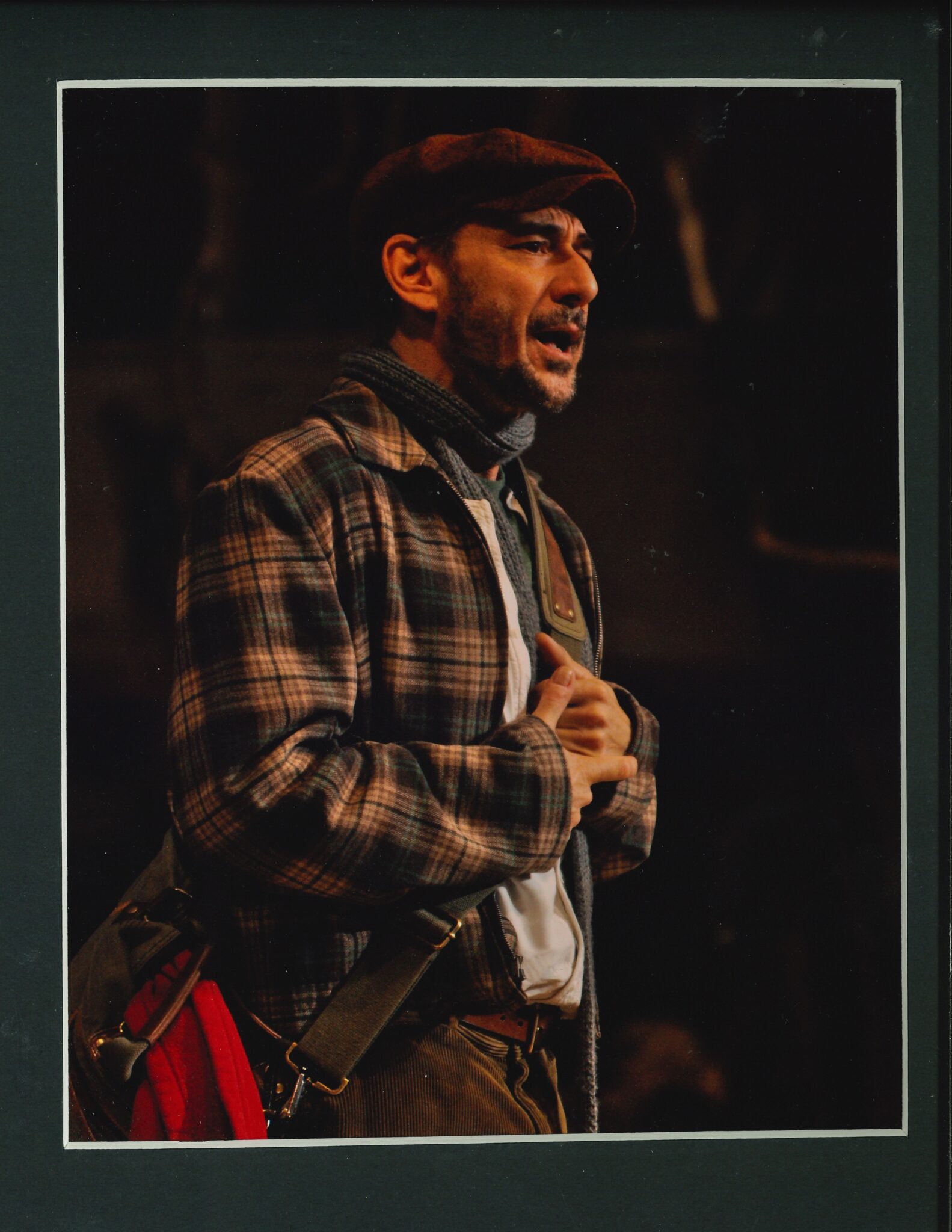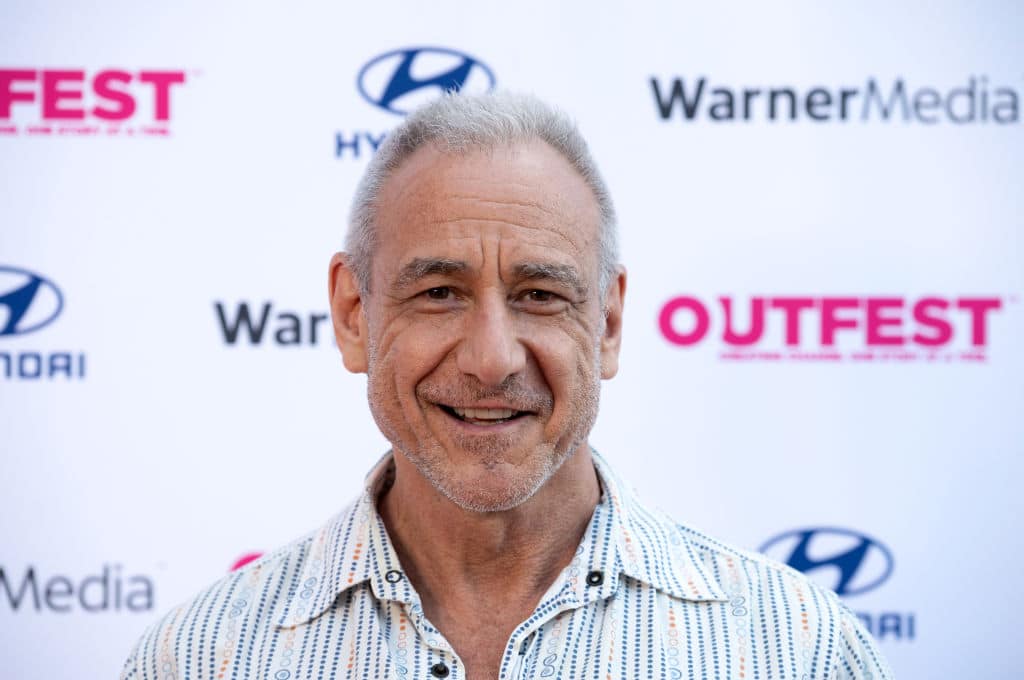OnlyFans ‘daddy’ David Pevsner says younger men ‘sneer’ at him for still using condoms

David Pevsner recounts what it was like to live through the AIDS epidemic. (Provided)
David Pevsner remembers vividly what it was like to come of age as a gay man when the AIDS epidemic was eviscerating the queer community.
Coming to terms with your sexuality and exploring your body isn’t an easy task at the best of times – but for an entire generation of queer people, HIV cast a dark shadow of shame and stigma over sex.
David Pevsner is a 63-year-old actor and former escort who has made a career for himself on OnlyFans with his explorative erotic imagery. You’ve probably spotted him on Modern Family, Desperate Housewives and Grey’s Anatomy, to name just a few of the shows he’s starred in.
You would be forgiven for thinking he’s always been brimming with self-belief – but that’s far from the full picture.
David arrived in New York in 1982, just when the AIDS epidemic was hitting the city. The arrival of HIV – and a whole host of other issues – gave rise to an ingrained feeling of shame. He explores those themes in his fascinating, often funny, and sometimes heartbreaking new memoir Damn Shame.
When asked what it was like to live through the AIDS epidemic, David’s answer is simple.
“Fear,” he says. “It was just fear, fear, fear.”
Queer people of the day eventually learned how HIV was transmitted – through condomless sex – so they were able to start making their own rules to protect themselves. Throughout those years, David had a lot of sex, whether it was with men he met in leather bars or through his escorting work. Still, sex has never been an entirely carefree experience for him – and that’s a direct result of coming of age during the AIDS epidemic.
“You were always like, ‘Oh, what if the rubber breaks?’ Or, ‘What if he shoots in my eye?’ I mean there were things we just didn’t totally know,” David says.
“You would sit there and watch friends get sick and die, and you kept thinking: ‘The target’s on my back.’ It was a lot of fear – and yet, you still had to go on. It’s not like I didn’t have sex – I did, but it was wrapped up and lubed up.
“It wasn’t very carefree for me – for some guys it was. Even until PrEP, it still was like, there were things I would do and things I would not do and you couldn’t convince me otherwise because I’ve gotten this far, stayed negative, I’m not interested in pushing myself too much. Now, I got kinky – I certainly had my kinks and I enjoyed them – but I wasn’t like, ‘Let it all go!’ There wasn’t 100 per cent abandon in what I did, and as you can probably tell, I would have loved to have had 100 per cent abandon, but I also might not be here.”
For David and queer people of his generation, the scars of the AIDS epidemic run deep.
“It’s not gone,” he says. “I still abide by my rules when it comes to sex, and maybe with the right person I will change them a little bit or expand them, but when you’re out and about and you’re having casual sex or whatever, it just makes sense to me: wear a rubber, be careful, but have fun.”
David Pevsner says he’s faced backlash for using condoms
With a lot of hard work, David has largely managed to overcome the spectre of shame that has followed him throughout his life. Still, the trauma from those years still lingers.
He knows that a lot of younger queer men on the scene today don’t use condoms. Some are on PrEP (pre-exposure prophylaxis), a drug that prevents a person from contracting HIV when taken daily. Others are comfortable with throwing caution to the wind, likely armed with the knowledge that HIV is no longer the death sentence it once was.
David has been dismayed by a small minority of younger gay men who sneer at those who do prefer to use condoms.
“The sneering thing I don’t like at all,” he says. “I have respect for how you go about your life, you better f**king have respect for how I go about mine. If you say to me, ‘You’re being so careful, it’s so stupid, you’re on PrEP’ – don’t tell me how to feel, especially when we f**k and I don’t see you again. Don’t you dare judge that.”
David recalls being at a party a few years ago when a cute, funny, younger guy started hitting on him.
“He went right up in my ear, and he was like, ‘You know later on I’m gonna take you home and I’m gonna shove my d**k inside of you,’ or something like that. And I was like, ‘Well I hope it has a rubber on it!’ And he goes, ‘Ugh, no.’ I said, ‘What do you mean?’ And he said, ‘Oh no, I would never do that.’ I was like, ‘You would never do that?’ The kind of fun, jaunty little moment we had turned into: ‘No, I’m not going to do that,’ because he was sneering at me.”
Not only did you fear for your friends, but you feared for yourself.
Of course, the entire experience of condoms and sex is a different beast for queer people who lived through the worst years of the AIDS epidemic. For people like David, sex was a fraught experience because the virus that was circulating in their community was politicised and wielded as proof that the gay lifestyle was wrong. There is now an entire generation of queer people having sex who have no memory of that time.
“The fact that I wear rubbers, whatever, there are probably some guys who don’t want to take advice from me,” David says. “You know, it’s too buttoned up, it’s too conservative about sex when you want to be free. I’m saying, that’s how I do it. That’s how I handle it. Be thoughtful about how you handle it and do what you want to do.”
He wants the next generation to learn their history
David writes about his memories of the AIDS epidemic in his memoir Damn Shame because he thinks it’s important that that era is remembered. It’s not easy for him to reflect on his time as a fledgling theatre actor in New York because of the sheer scale of death and devastation.
“Not only did you fear for your friends, but you feared for yourself,” he reflects. “I worked with people in shows, and they would start to take sick days, and then we would find out that they had HIV. The theatre community was very supportive of guys with HIV and AIDS – try to keep them working for as long as they could, not being so like, ‘Get away from me!’ in the way other people were.”
David doesn’t want to “instil fear” in younger queer people by sharing his memories – he just wants to make sure those who died are remembered and that the next generation is aware of what happened. He also believes we should be looking at the AIDS epidemic for answers in how we’re dealing with the COVID-19 pandemic.
“History can teach you things,” he says. “Dr Anthony Fauci, with AIDS, everything we’ve got, he fought for – he was such an advocate – and now they’re s**tting on him because he’s trying to do the right thing… We’ve been in an epidemic before, god damn it. Get your f**king vaccines and boosters and wear your god damn masks, you idiot.
“Every time I hear any of that kind of Fox News or anti-mask stuff, I’m like, this is the second pandemic of my life – AIDS being the first – we have to pull together and deal with it and learn what to do which is what the gay community did. The whole LGBT+ community – everyone pulled together, because we were seeing our brothers and sisters die. Well, 800,000 people in America dead [from COVID-19] – are we pulling together? No, we’re not. It’s disgusting.”
David doesn’t want younger queer people to think he’s wagging his finger at them and telling them what to do. He just wants to make sure people are taking care of themselves and prioritising their own health and wellbeing when having sex.
“I hope if you do it, you’re taking care of yourself – that’s all. We need to do away with the s**tty judgement we throw on each other.”
Damn Shame by David Pevsner is out now.



